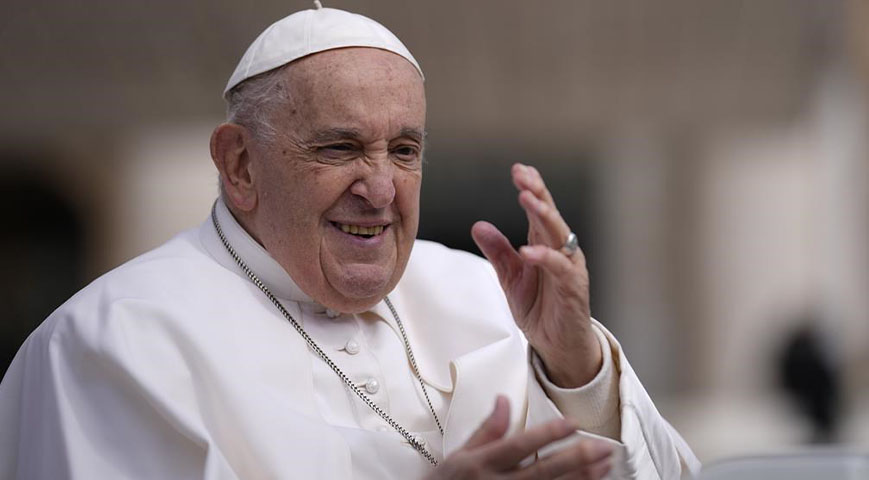Pope Francis, the first Latin American to lead the Roman Catholic Church, died at 88 on Monday, the Vatican confirmed in a televised statement.
His death marks the end of a transformative and often controversial papacy that began in 2013.
Cardinal Kevin Farrell made the solemn announcement on Vatican TV, saying, *“Dear brothers and sisters, it is with deep sorrow that I announce the passing of our Holy Father Francis. At 7:35 this morning, the Bishop of Rome returned to the house of the Father.”*
Born Jorge Mario Bergoglio in Argentina, Francis was elected pope on March 13, 2013. His election surprised many, as he was considered a reform-minded outsider with a strong focus on the poor and marginalized. From the outset, he signaled a break from tradition, declining the lavish papal apartments in favor of modest living arrangements, citing the importance of community for his mental well-being.
Francis took the helm at a turbulent time, with the Catholic Church embroiled in global scandals, particularly concerning clerical sexual abuse and internal power struggles within the Vatican. Tasked with restoring credibility and reforming the institution, he quickly became a divisive figure.
Did you read this?
Throughout his tenure, he faced mounting resistance from conservative factions that opposed his progressive views and disappointment from liberal voices that felt he hadn’t gone far enough in modernizing the 2,000-year-old Church.
Pope Francis rose to global prominence despite internal challenges, drawing massive crowds during his international visits and symbolizing compassion and advocacy for peace, social justice, and interfaith dialogue. He was particularly outspoken in support of migrants, the poor, and those on the margins of society.
For much of his pontificate, Francis shared the Vatican with his predecessor, Pope Benedict XVI, who had resigned unexpectedly in 2013. Benedict, a strong figure among traditionalists, passed away in December 2022, leaving Francis as the sole papal authority.
As of February 2025, Pope Francis had appointed nearly 80% of the cardinals eligible to vote for the next pope. This increases the likelihood that his vision for a more inclusive and reform-oriented Church will continue, even amid ongoing conservative opposition.
His passing follows a recent health struggle with double pneumonia, from which he had appeared to recover.
Pope Francis leaves behind a legacy marked by both passionate support and deep controversy, having reshaped the papacy in ways not seen in centuries.









